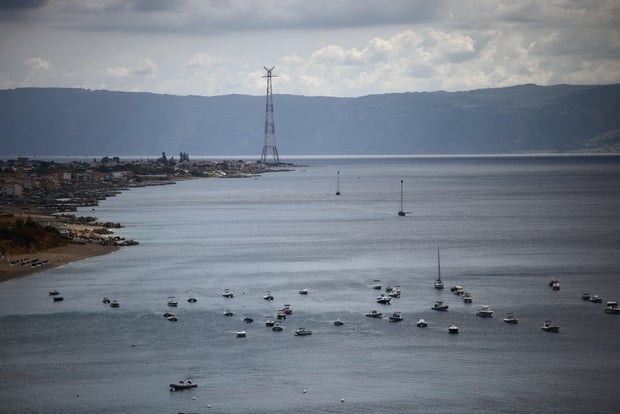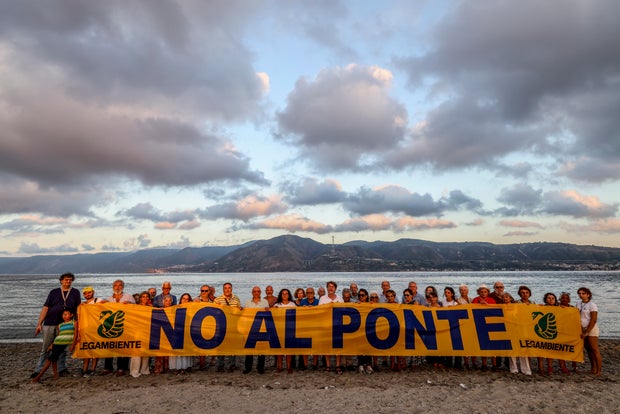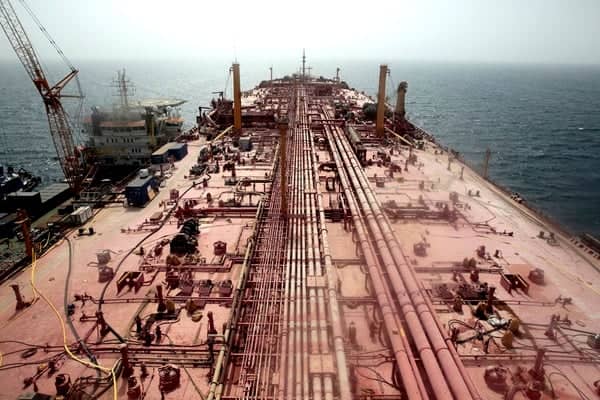Suspension Giant Approved: Italy and Sicily to be United by the World’s Longest Span
On an overcast Roman Wednesday, a panel of ministers quietly erased decades of red tape – and, in doing so, opened the way for a structure every bit as audacious as the Alps are high. The final green-light for the Messina Strait Bridge came from the Comitato Interministeriale per la Programmazione Economica (CIPE), whose members voted to unlock €13.5 billion in public and private capital. The verdict clears the path for preliminary ground work to start before autumn and for full-scale construction to rise from the water as early as next spring.
Key Milestones Locked-in
- Late Summer 2024 – geotechnical crews, survey vessels and environmental testers move onto site
- Spring 2025 – first piles driven, catwalks for the main cables installed
- 2032 – traffic rolling across a 3.3-kilometre central span
What Makes it Unprecedented
The single-deck suspension bridge will carry both high-speed trains and six lanes of highway suspended more than sixty metres above one of the Mediterranean’s busiest shipping corridors. Engineers calculate that the main cables alone will use enough high-tensile steel to wrap the planet a full time and a half. When completed, the crossing will shorten the train trip from Rome to Palermo to roughly five hours, shaving off almost three compared with today’s ferry-and-rail labyrinth.
Seismic, Ecological and Criminal Shadows
No undertaking of this magnitude sidesteps controversy, and the Strait is no exception.
- Earthquakes – the region registers upward of 200 micro-quakes a year. Designers have embedded viscous dampers able to absorb energy equivalent to a Magnitude 7.1 event.
- Wildlife – conservationists fear disruption to migrating pelagic birds and to the rare giant devil ray. Construction schedules must now follow a strict seasonal window of restricted activity.
- Mafia infiltration risk – every major infrastructure in southern Italy attracts Cosa Nostra attention. Transport Minister Matteo Salvini announced a zero-tolerance protocol: all contracts will be published in searchable open data format and monitored by an anti-racket unit with magistrates empowered to revoke concessions instantly.
A Salvini Promise, a Sicilian Dream
Speaking from the Ministry’s palazzo on Via Nomentana, Salvini hailed the decision as “a magnetic accelerator for growth across Mezzogiorno”, suggesting that freight volumes between mainland ports and Sicily could double within the first ten years of operation. Local mayors are already planning spin-off logistics zones on either shore; universities are pitching departments of aerodynamic engineering to be anchored at the bridgehead.
For generations, schoolchildren in Messina have drawn suspension bridges across their homework. In just a few months they will witness the first steel rise from the mirror-blue strait their grandparents crossed only by midnight ferry.

Straits of the Future: Italy’s 3.7-Kilometre Lifeline Rises at Last
August 5, 2025—Calabria coastline, 8:04 a.m. Early sunlight fans out over water once plied by Roman triremes and modern ferries alike, framing the narrow blue throat where mainland Italy almost kisses Sicily. By this time next year, the first steel caisson for the long-promised suspension bridge will be lowered onto the seabed, transforming an idea older than Julius Caesar into a 3 700-metre reality.
The Longest Pendulum Ever Hung
- Main span: 3 276 m (the record-shattering “pendulum”)
- Total deck length: 3 695 m
- Elevation above sea lane: 70 m
- Traffic architecture: Four road lanes plus double-track railway
- Daily flow target: 6 000 cars per hour • up to 200 trains
The crossing will eclipse Turkey’s Çanakkale Bridge by more than 1 270 metres, crowning it the planet’s grandest single-suspension span.
A Plot Twist Fifty-Six Years in the Making
1969: Rome invites conceptual bids.
1981, 1993, 2006, 2011: blueprints hailed as “historic moments,” then moth-balled by budget blues, shifting governments, seismic jitters.
2023: Giorgia Meloni signs the revival decree.
2025, second half: tunnelling rigs and floating cranes at last converge on the Strait.
Deputy Premier Matteo Salvini, who campaigned in a high-vis vest emblazoned “Ponte Subito!” calls the restart nothing short of “a revolutionary breath” for Italy’s south.
What the Steel Ribbon Will Deliver
Economic Pulse
4 000 direct construction jobs • 9 000 induced supply-chain positions • two-hour rail link between Palermo and Naples—current ferry-plus-rail haul: five hours.
Cultural Stitch
Linguists and historians foresee a re-weaving of two ancient provinces: Sicilian citrus barons and Calabrian olive growers trading within minutes, not tides.
Concrete Timeline
- July 2025: Environmental compensatory measures go live—2 500 hectares of seabed replanted to safeguard swordfish migration routes.
- December 2025: Caisson 1 sinks off Villa S. Giovanni.
- 2029: Main cables spun—each a bundle of 44 000 kilometres of galvanised steel wire.
- 2032: Red ribbon and the south’s first non-stop express from Taormina to Rome.
As ferries still crisscross the 3-kilometre strip below this August morning, the horizon bears the ghost-outline of a bridge not yet born. By the decade’s end, that ghost will be iron, concrete, and light.
Controversy continuing
Why Italy’s Proposed Bridge Has Europe’s Thinkers and Activists Up in Arms
The Phantom Span
A decades-long pattern haunts Italian megaprojects—grand announcements, money allocated, then nothing. Analysts are now betting that the latest design joining Sicily to the mainland could remain on the drawing board forever. Political momentum is high, skepticism higher.
Warping Budget Lines: 5% GDP & the “Security Bridge”
– 5 % NATO Goal: Rome vows defense outlays will hit the alliance’s headline target.
– Accounting Trick: By tagging the crossing “strategic infrastructure,” up to 1.5 % of its total budget can be booked as “security spending,” giving the national ledger a sudden bump.
– Tactical Rationale: The span would become a single-axis freeway for tanks, artillery and logistics rolling south-east toward NATO’s Mediterranean frontline.
A Mutiny in the Lecture Halls
- 600-plus academics signed an open letter in June, protesting the new military label.
- The classification demands fresh stress tests—explosives, cyber attacks, sabotage scenarios.
- Rather than keep soldiers safe, they say, the label could paint a bull’s-eye on concrete towers already battered by seismic risk data.
Greens Take the Case to Brussels
BirdLife Europe, WWF Italia and local NGOs have filed formal objections with the Commission. Their core claim: autumn and spring migration routes converge directly over the planned central span, yet the environmental impact study has not proven the structure is a public imperative. Until it does, EU biodiversity law should block a green light.

Fury and Fault Lines: Italy Braces for a Span across the Strait of Messina
Why the Sudden Outcry?
Months after the Draghi-era freeze, Giorgia Meloni’s cabinet dusted off the 2009 decree that jump-starts megaprojects by emergency ordinance. Key to the anger:
Still, watchdog groups insist that even the revised rules allow “golden share” maneuvers in which ministries quietly swap compliance officers without public notice.
The Builders: From Bosphorus to Back-Order
The 4-billion-euro contract was quietly awarded in April to WeBuild, the Rome-based group whose resume reads like a roll-call of record-breaking spans:
Engineers say they will graft the Çanakkale template—an aerofoil deck inspired by jet-fighter fuselages—onto the 3.3 km double-box girder that will leap from Calabria’s Villa San Giovanni to Messina’s gritty Torre Faro quay. Pietro Salini, WeBuild CEO, calls the structure “Italy’s new industrial backbone” and predicts it will shave two hours off the Milan-Palermo freight run once rail tracks and emergency lanes are threaded through the deck truss.
Can a Bridge Outfox an Earthquake?
Scoffers point to the 1908 Messina earthquake that claimed 80,000 lives and tore the seabed with a violence still visible in naval sonar scans. WeBuild counters with case studies:
Finite-element simulations presented last month in Palermo show the Messina pylons floating on rubber bearings that can shift 1.3 m east-west while the deck flexes like a suspension skateboard, absorbing energy instead of cracking. Independent seismologists call the model “promising yet untested at this scale.”
Next Milestones
The environmental-impact hearings resume in September while archeologists finish a last-ditch dive for Bronze Age anchors near Ganzirri Point. Meanwhile:
For tonight, however, Torre Faro’s lantern flickers over a battle of wills: activists swearing to chain themselves to ferry docks, and engineers dreaming of a slender thread of steel forever linking Sicily to the mainland.




